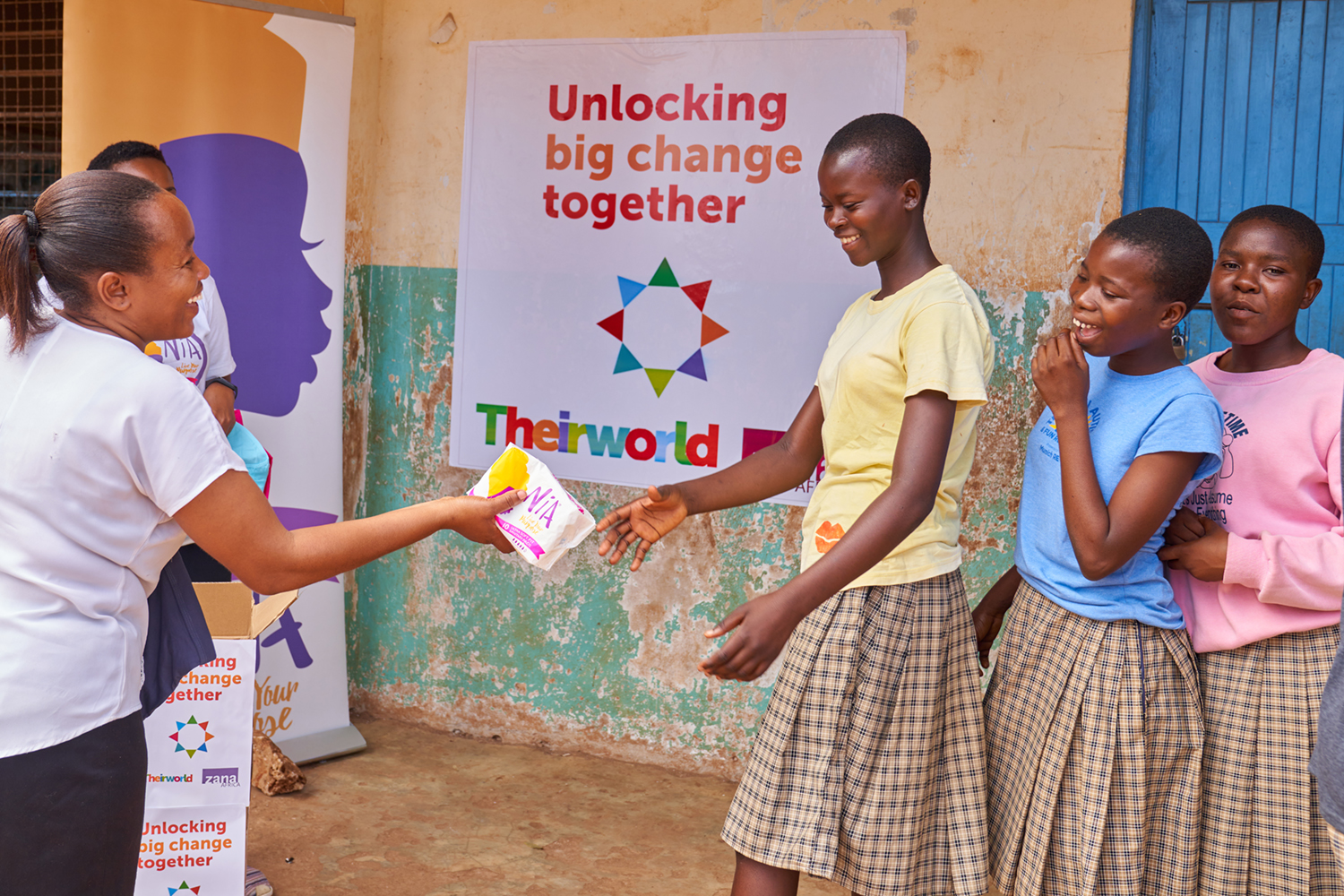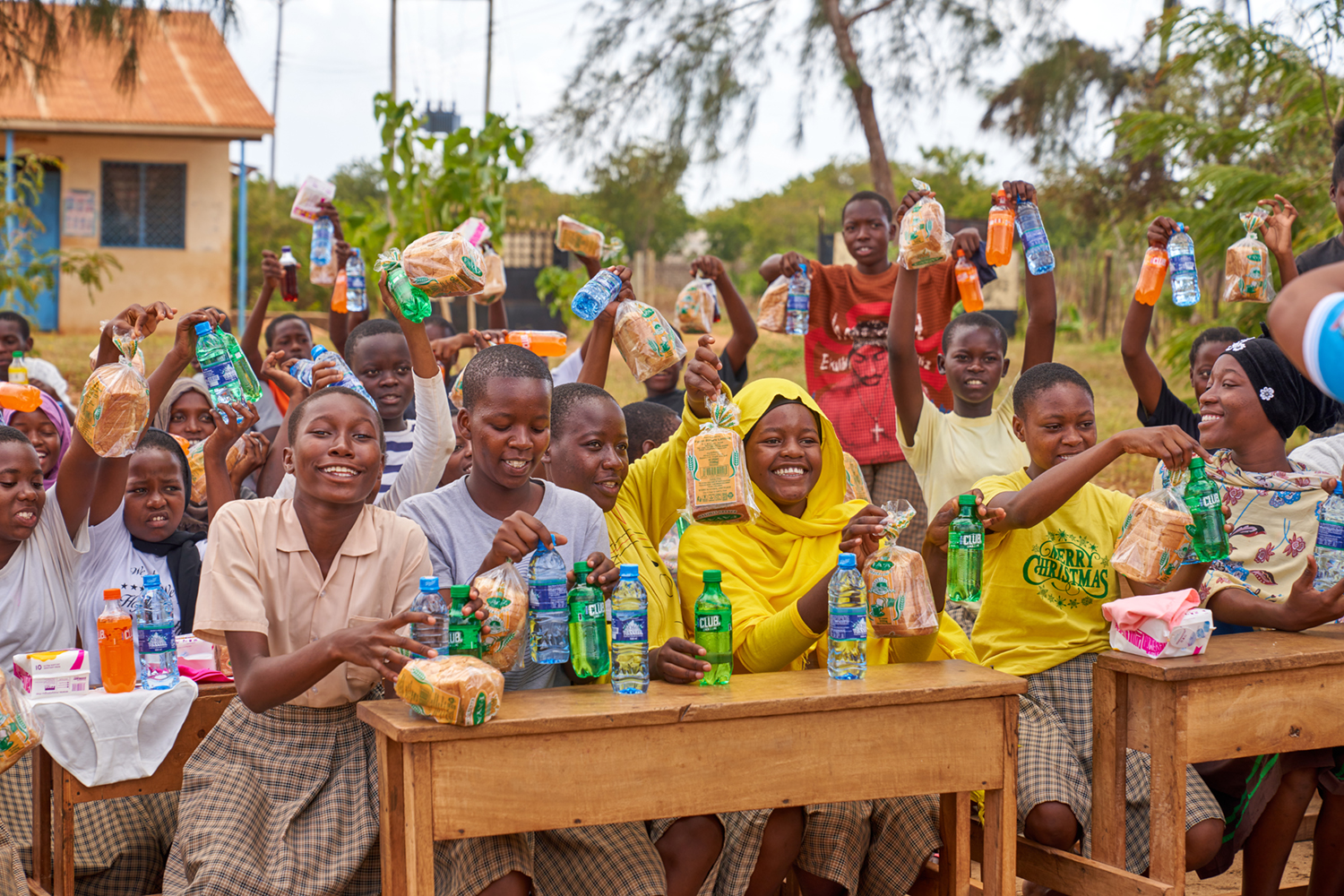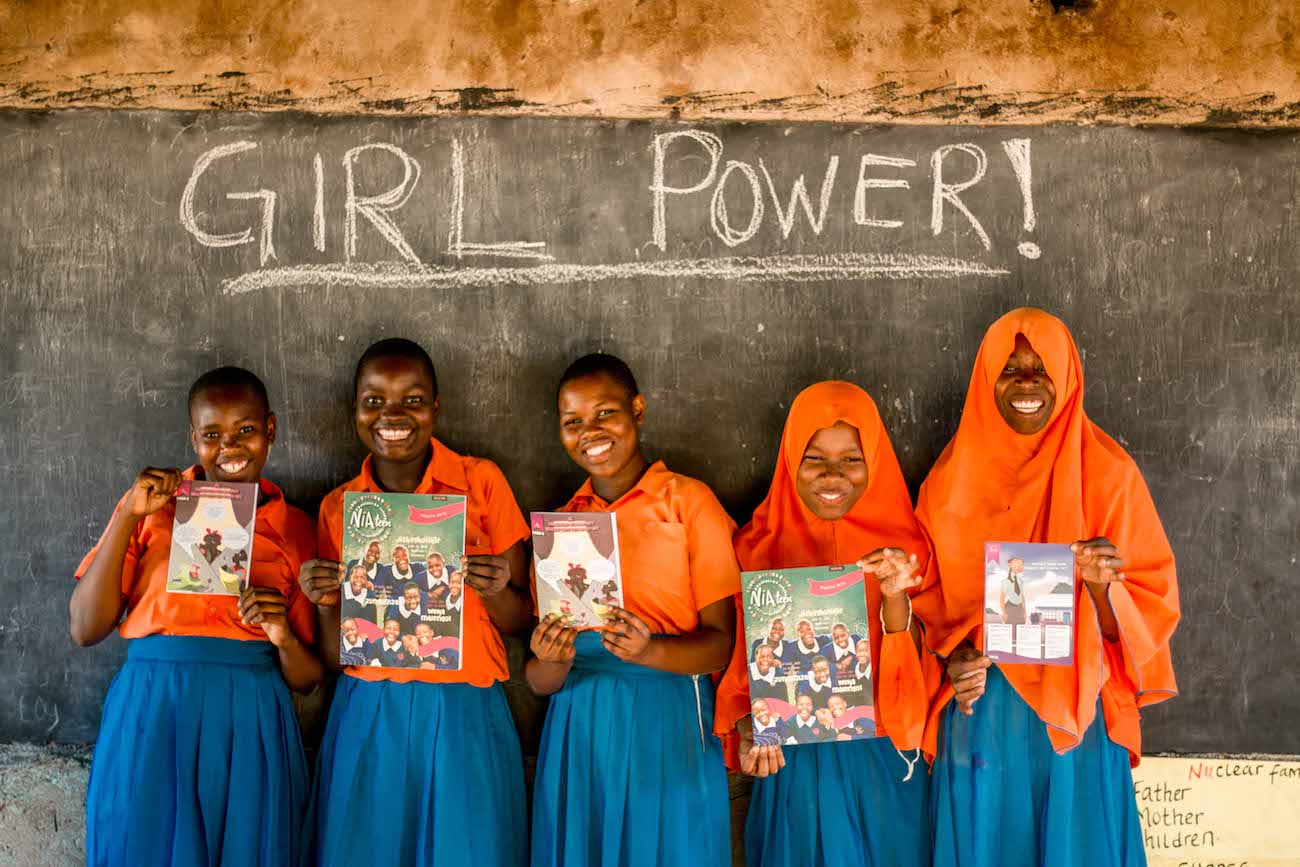
Health and Life Skills education with ZanaAfrica Foundation
About the project
Context
The Nairobi-based organisation says its work is crucial because two in three girls in Kenya lack access to health education and menstrual pads. Topics such as puberty and reproductive health are considered taboo and are rarely discussed at home or in the classroom. The lack of menstrual products, combined with the stigma around menstruation, is having a huge impact on girls’ health and safety. It is estimated that one in five girls in Kenya aged 15 to 17 are pregnant or have had children. (UNESCO)
Approach
The ZanaAfrica Foundation delivers lessons in reproductive and life skills to girls in Kenya. Its curriculum improves girls’ self-belief and confidence, as well as teaching boys about respect and understanding.

A menstrual health session and distribution in Kilifi, Kenya
Gertrude’s story
When 15-year-old Getrude learned about gender stereotypes at her school in Kenya, she decided it was time to educate her family. Her mother didn’t believe Getrude should play football with boys or that her brother should wash dishes because it was a “girls’ chore”. Getrude said: “I sat my mum down to teach her. She read the lessons and changed her views. I want the whole world to know that girl empowerment is very good because girls can do what boys can do. Human rights are for everyone.” Getrude’s lessons in reproductive health and life skills were delivered by ZanaAfrica. She added: “When we empower a girl with a [menstrual] pad, she can come to school, study well, pass her exams and change her life and her family’s life.”
News
